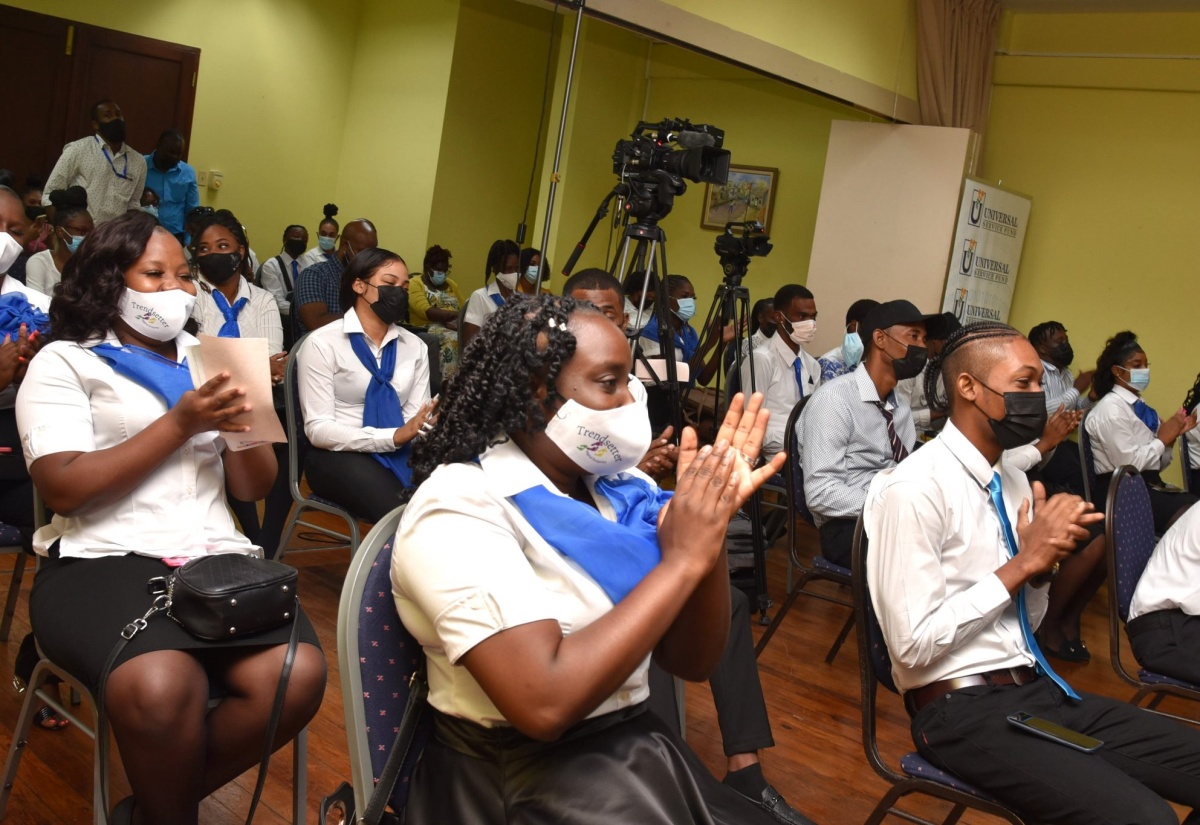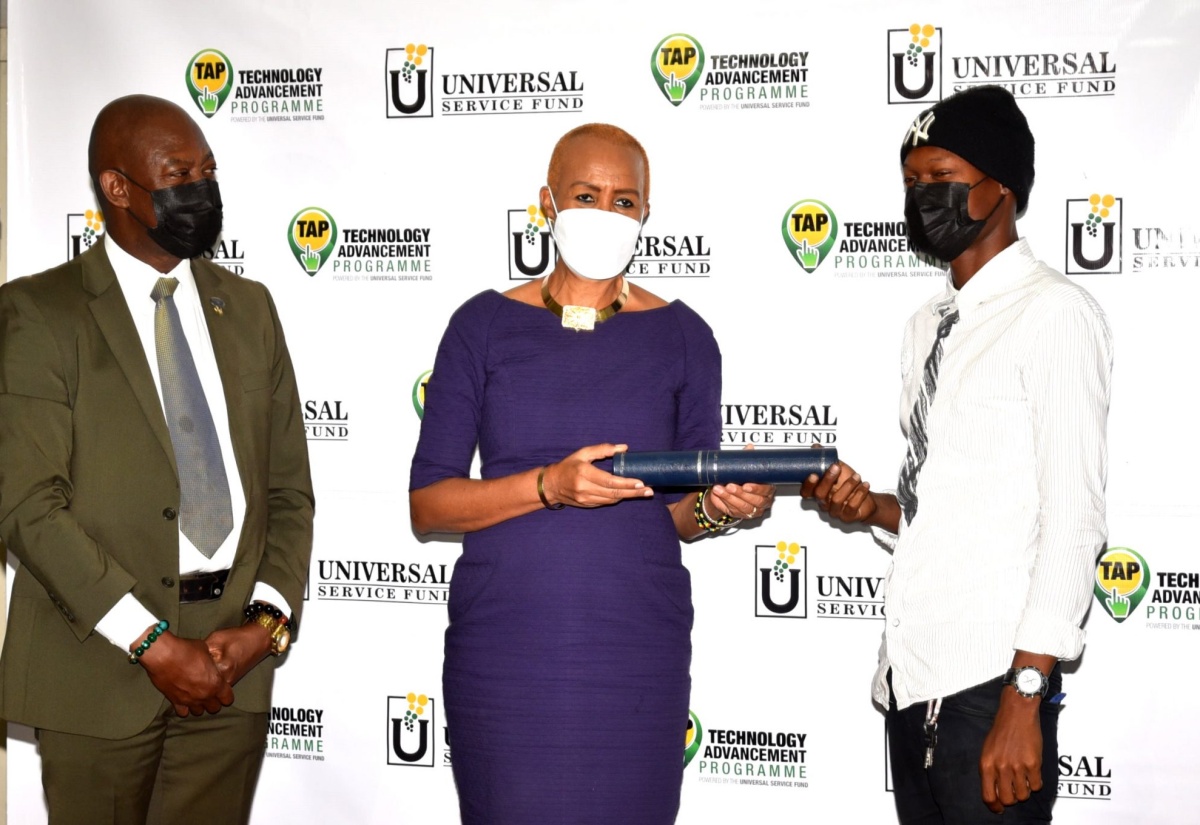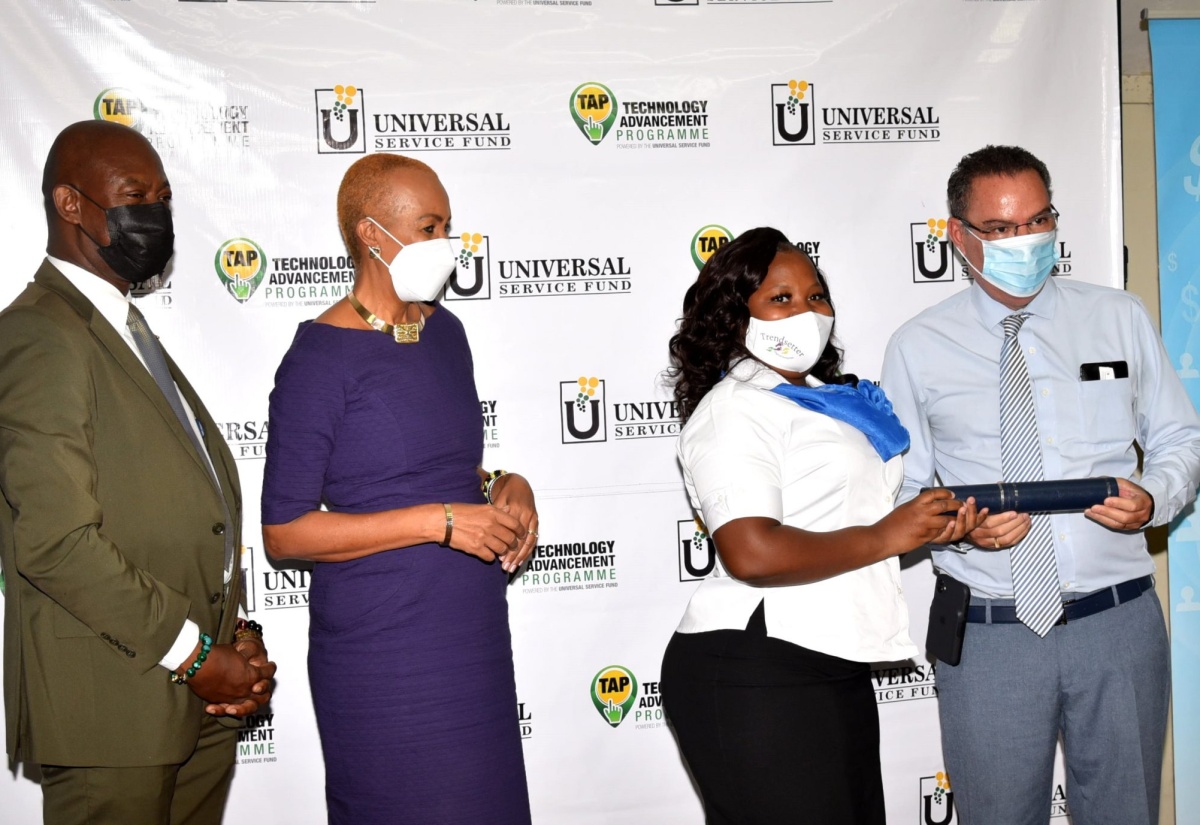Over 600 Young People Graduate From Technology Advancement Programme
By: , November 18, 2021The Full Story
More than 600 young persons, who successfully completed training under the Government’s Technology Advancement Programme (TAP) for the 2019/2020 period, were presented with certificates during a graduation ceremony held at the Liguanea Club in New Kingston on November 16.
They are the second cohort to be trained under the initiative, which is aimed at equipping unattached youth across the island with skills in information and communications technology (IT) to improve their job prospects.
TAP, which was launched in 2017, is being spearheaded by the Universal Service Fund (USF).
Minister of Education, Youth and Information, Hon. Fayval Williams, congratulated the graduates for completing the year-long training programme.
She encouraged them to “see the training… as but one small step in your journey of continuing education. There is a vast ocean of opportunities, and I am encouraging you to get as much information as you can and tap into these opportunities for your personal development”.
The Education Minister noted that TAP has “reached hundreds of young people and has given them training opportunities, as well as certification and job placements in the ICT sector”.
She said that training of young people is a national priority to foster smooth transitions in employment amid new developments and the disappearance of “traditional” jobs.
“In an increasingly knowledge-based global economy, it is imperative that the development of human capital and training is in keeping with local demands and international trends,” she noted.
Minister of Science, Energy and Technology, Hon. Daryl Vaz, said that TAP was instituted within the ambit of the Government’s thrust to create a technology-enabled society.
“It is my desire to see our youth maximise their creative capacities and earning potential through the use of ICT and “tech charge” of their future,” he said.
Minister Vaz noted that throughout the global pandemic, “technology has advanced rapidly, and digital skills and the adoption of digital technologies are necessities for individuals and organisations to survive and thrive”.
“With the World Economic Forum predicting that closing the global skills gap could add US$11.5 trillion to the global gross domestic product by 2028, we must do our part so that our people can have the greatest possibilities to excel in the digital future,” he said.
TAP involves collaboration with the HEART/NSTA Trust, Ministry of Labour and Social Security and the Caribbean Maritime University (CMU).
During the year-long programme, participants aged 18 to 35 undergo training over a six-month period – three with the CMU and three with the HEART NSTA/Trust – before being placed in a working environment for another six months.
These include primary and secondary schools as well as other public and private-sector organisations.
Upon successful completion, the participants receive HEART certification equivalent to the institution’s Level 2 qualification, and a certificate of completion from the CMU, which will enable them to matriculate into a programme at the university.
During the period of training, participants receive a stipend to assist with transportation, meals, and other expenses.




